
Careers News
- Details
The Solicitors Regulation Authority has this week published its new Handbook, setting out the watchdog’s approach to regulating law firms and alternative business structures from 6 October 2011.
Ten mandatory principles will replace the current regime of detailed rules and regulations from that date, when ABSs will also be allowed for the first time. The principles are that solicitors and firms regulated by the SRA, and all those who work in them, must:
- Uphold the rule of law and the proper administration of justice
- Act with integrity
- Not allow their independence to be compromised
- Act in the best interests of each client
- Provide a proper standard of service to their clients
- Behave in a way that maintains the trust the public places in them and in the provision of legal services
- Comply with their legal and regulatory obligations and deal with their regulators and ombudsmen in an open, timely and co-operative manner
- Run their business or carry out their role in the business effectively and in accordance with proper governance and sound financial and risk management principles
- Run their business or carry out their role in the business in a way that encourages equality of opportunity and respect for diversity
- Protect client money and assets.
The SRA said there were differences between the principles and the core duties in the Solicitors’ Code of Conduct 2007, with the sixth principle talking about “the provision of legal services” rather than “the legal profession”. Principles 7 to 10 are also new.
According to the Handbook, “you should always have regard to the Principles and use them as your starting point when face with an ethical dilemma. Where two or more Principles come into conflict, the Principle which takes precedence is the one which best serves the public interest in the particular circumstances, especially the public interest in the proper administration of justice”.
The Handbook is designed to support outcomes-focused regulation, with the authority claiming this would free lawyers from “box ticking and form filling”.
The watchdog said it would be looking at “breaches of principles and failure to achieve defined outcomes, rather than assessing whether detailed rules are being followed”.
SRA chief executive Antony Townsend insisted that there would be no lowering of standards. “This is not light-touch regulation, it is a framework that will allow the SRA to regulate firmly and fairly while legal services providers are given the chance to serve their clients in the best possible way,” he said.
"Our primary concern will be to work with firms to improve standards. Only when failures are serious or a firm does not show the will to improve will we consider taking formal action."
The SRA claimed that the ABSs it licenses will have to uphold the same professional standards as traditional firms. Clients and funds will also receive the same level of protection.
“Anyone with a material interest in an ABS will be subject to a Suitability Test while the SRA's existing indemnity insurance and compensation fund provisions will apply to ABS in respect of all 'regulated' activities,” the authority said.
The SRA said it would be holding a number of roadshows on the new Handbook ahead of its introduction.
- Details
Three solicitors have been shortlisted for the Local Government Young Solicitor of the Year award for 2011, it has been announced.
The three candidates to be chosen are:
- Sarah Bonser: a solicitor at Kent County Council who works in the Planning and Highways team. She specialises in planning, compulsory purchase and property matters.
- Sabrina Sangha: a solicitor at Thurrock Borough Council who works in the Corporate team. She specialises in contracts, commissioning and procurement
- Naomi Bentley-Lawson: a solicitor at Warwickshire County Council who works within child protection. She specialises in safeguarding and children’s services.
The winner will be announced on 15 April at the Weekend School, which is being held in Exeter this year.
The award, which is sponsored by law firm Trowers & Hamlins, was first handed out in 2005. It is intended to recognise the unique and valuable contribution that young solicitors make to their authorities and communities. Last year’s winner was Laurie Trounce of Cornwall Council.
- Details
The Solicitors in Local Government group is calling for entries for its 2011 Local Government Young Solicitor of the Year Award.
The award is open to any local government solicitor who has up to ten years’ post qualification experience. Nominations can be made by the applicant, their manager, a client officer or member, or other local authority representative who recognises the contribution made by the applicant.
In choosing the winner, the judges “look for evidence of innovation, material impact on an authority’s performance, best practice and/or contribution to raising the profile of local government lawyers”.
The judges have also awarded special commendations in years where they have felt that more than one applicant is worthy of recognition.
The closing date for nominations is 4 March 2011. The winner will be announced at the SLG Annual Dinner on 15 April in Exeter.
This is the seventh year of the award, which is sponsored by law firm Trowers & Hamlins and designed to recognise the contribution that young solicitors make to their authorities and their communities.
Last year’s winner was Laurie Trounce, a solicitor in the legal team at Cornwall Council who won for her advice on a range of commercial and procurement matters including Newquay Airport and issues relating to the establishment of the Cornwall Unitary Authority.
Trounce said that winning the award had raised the profile of the legal team and provided recognition for the authority.
A copy of the nomination form can be downloaded from the SLG’s website.
For more information, contact
- Details
Solicitors in Local Government has criticised proposed changes to the Solicitors Regulation Authority’s new Handbook that would restrict pro bono work by in-house solicitors.
In its latest round of consultation the SRA had suggested that it would be unable to continue to permit solicitors to provide pro bono reserved legal services to the public through an organisation which is not authorised, "because of the lack of any nexus between the organisation and the clients".
It added: "As this change in approach will impact on good work carried out by many in-house solicitors, we are endeavouring to resolve this issue in co-operation with the Legal Services Board.... We expect that this issue can be resolved, but if it cannot, we propose to use transitional provisions to permit ongoing work to be completed."
In its submission to the second consultation on the Handbook, which will underpin the regulation of solicitors and law firms from October 2011, the SLG said: “We do not support the changes proposed in Rule 4.10 restricting pro bono work for in-house solicitors. SLG has worked extremely hard to promote pro bono opportunities to local government practitioners working in partnership with LawWorks and the Citizenship Foundation.
“The rationale for this change is not well argued in the consultation document and little consideration seems to have been given to the likely impact of the change. There is a significant change and should have been brought to the attention of the representative bodies separately given that there was little response to this section in the original consultation.“
The SLG also argued that there was inconsistency in the draft rules in terms of the insurance cover required to carry out such work. The group argued that pro bono should fall under the provision whereby the work is sanctioned by and the risk is covered by the employer.
“Where an in-house solicitor wishes to do pro bono work outside the scope of their employment this should be done through an appropriately licensed body,” it added.
In other areas, the SLG said a change of wording for Principle 9 of the draft Handbook from “promote” to “encourage” represented a watering down of the commitment to equality and diversity.
“We believe that ‘promote’ should be reinstated and is more akin to the public sector duty to which we already work as local government practitioners and we believe is best practice,” the submission said.
Welcoming the insertion of more specific references to in-house practice in the new SRA Code of Conduct, the SLG also said:
- In order for outcomes focused regulation to be effective, regulatory staff “need a clear change of mindset from the current rule based approach and in that sense the profession will take its lead from how your [the SRA’s] staff discharge their functions”
- All the outcomes should apply to solicitors working in local government in those cases where they are providing services to external clients “so as there is no distinction with our private sector colleagues”
- The SRA should review whether Outcome 9 – covering outsourced legal activities or operational functions – should apply to in-house practice. “If this Outcome is designed to cover legal process outsourcing, it should not be assumed that this will not apply to local authority legal departments in the future”.
The consultation was the last opportunity for comments on the new Handbook. The SRA's aim is to bring all of its regulatory requirements into a single coherent structure.
- Details
Legal recruitment in the public sector is set to remain subdued next year, but shortages in key areas such as childcare are set to remain, recruitment consultancy Badenoch and Clark has said.
However, the consultancy said that the second half of next year should see some stability return to public sector recruitment, once the effects of the budget cuts had been absorbed into organisations' budgetary planning.
“We anticipate that hiring in 2011 will be better than in the latter half of 2010 because there is more clarity over budgets and hiring managers are better able to present a business case,” said Lynne Hardman, managing director of professional services at Badenoch and Clark.
In the meantime, she added. there will likely be some pockets of growth in the public sector, such as regulatory organisations.
By contrast, recruitment by private sector law firms – especially those in commercial fields – is set to improve next year, as is that by in-house legal departments in commercial firms. However, the firm suggested that public sector candidates would need to compete hard if they want to take advantage.
“The outlook for the public sector remains uncertain, and candidates will have to re-evaluate their skill set if they opt to make the transition to the private sector,” Hardman said.
- Details
The regime for training and supporting solicitor-advocates is not fit for purpose, a major Law Society report leaked to legal regulation website Legal Futures has claimed.
The report by Nick Smedley sets out a comprehensive new approach to advocacy, including a full-time course of two to six months for solicitors who want to gain higher rights, and creation of an Academy for Solicitor Advocates. Practitioners with higher rights would have a title such as “Fellow of the Solicitor Advocate Academy”.
Expressing concern about the adequacy of advocacy training for newly qualified solicitors too, and so the exercise of rights of audience in the lower courts, Smedley calls for advocacy to be given a “more central role” in both the legal practice course and the professional skills course/training contract.
While recognising that the Law Society has to decide whether advocacy is of sufficient priority to invest the necessary resources, and that many solicitor-advocates are of high quality, he says the need for action to improve standards is “pressing”. Without reform, “solicitor-advocates will continue to be viewed by many influential parties in the court system as second-class citizens” and it will be “hard to refute the criticisms levelled at solicitor-advocates, by the Bar and others”.
Among the 45 people he interviewed for the report were the Lord Chief Justice, Lord Judge, Legal Services Board chief executive Chris Kenny, Bar Council chairman Nick Green QC, and Lord Justice Etherton, president of the council of the Inns of Court. The Solicitors Regulation Authority controls rights of audience.
Respondents to a survey of solicitor-advocates conducted to inform the review sent a clear message that the current advocacy training provision is “failing” solicitor-advocates, Smedley reported. His research backed this up. “My conclusions about the sufficiency of training and other support for HCAs and indeed for solicitors at the point of admission is that the current arrangements are not fit for purpose,” he writes. “The quality and quantity of training is inadequate to set and maintain standards.”
He criticises the Solicitors Regulation Authority’s move away from mandatory training for those seeking higher rights, and says not requiring experience in the lower courts is “flawed”. Smedley says: “The Law Society should take immediate steps to introduce a far more robust approach to advocacy training, as well as the introduction of significantly enhanced post-qualification CPD and other developmental support for HCAs [higher court advocates].”
As part of the new accreditation scheme – which would include the dedicated training period, ending with an assessment – he says candidates should be required to shadow an experienced advocate as well as a judge. He recommends a full-time course so that HCA training follows more closely the model of the bar professional training course.
For three years after gaining higher rights, solicitor-advocates would be on probation, Smedley says. During this time they would be matched to a mentor, keep a portfolio of their work for periodic assessment, and be observed first-hand in court by recently retired judges and advocates. There would be mandatory CPD training in advocacy skills.
Smedley says a “more developed infrastructure” is needed to help develop advocates, recommending an advocacy standards board and a new Law Society section to complement the existing Solicitors Association of Higher Court Advocates.
Law Society president Linda Lee said: “The Law Society commissioned this research to investigate what additional help could be offered in the training of solicitor-advocates. Nick Smedley provided a draft report that is now being considered internally. The Law Society is committed to assisting solicitor-advocates in the market by helping them achieve the highest standards. We hope to make further announcements of our work in the New Year."
Neil Rose is editor of Legal Futures (www.legalfutures.co.uk).
Page 86 of 88
Head of Governance & University Solicitor
Senior Lawyer - Advocate
Assistant Director - Legal & Governance
Director of Legal and Governance (Monitoring Officer)
Events

 Back to Basics: Construction Insurance and Insolvency - Devonshires
Back to Basics: Construction Insurance and Insolvency - Devonshires
16-07-2025 2:00 pm
Online (live)
 Institutional landlord series: Service and Notices – from Possessions to Injunctions and Requests for Access - 5 Pump Court
Institutional landlord series: Service and Notices – from Possessions to Injunctions and Requests for Access - 5 Pump Court
16-07-2025 4:00 pm
Online (live)
 HMPL Building Blocks: Tackling Non-occupation and Sub-letting - Devonshires
HMPL Building Blocks: Tackling Non-occupation and Sub-letting - Devonshires
17-07-2025
Online (live)
 To establishing whether Material Changes of Use have occurred - Ivy Legal Training
To establishing whether Material Changes of Use have occurred - Ivy Legal Training
18-07-2025 9:30 am
Online (live)
 Business and Property Masterclass #5: Interim Relief – Acting urgently and getting it right - Cornerstone Barristers
Business and Property Masterclass #5: Interim Relief – Acting urgently and getting it right - Cornerstone Barristers
10-09-2025 11:00 am
Online (live)
 Business and Property Masterclass #6: Rights of Light and Restrictive Covenants - Cornerstone Barristers
Business and Property Masterclass #6: Rights of Light and Restrictive Covenants - Cornerstone Barristers
23-09-2025
Online (live)
 HMPL Building Blocks: Service Charges & Ground Rent – Tackling Leasehold and Shared Ownership Arrears - Devonshires
HMPL Building Blocks: Service Charges & Ground Rent – Tackling Leasehold and Shared Ownership Arrears - Devonshires
14-10-2025
Online (live)
 Institutional landlord series: Possession – High Court Enforcement - 5 Pump Court
Institutional landlord series: Possession – High Court Enforcement - 5 Pump Court
22-10-2025 4:00 pm
Online (live)
 Institutional landlord series: Costs Recovery and Legally Aided Parties - 5 Pump Court
Institutional landlord series: Costs Recovery and Legally Aided Parties - 5 Pump Court
05-11-2025 4:00 pm
Online (live)
 HMPL Building Blocks: Law and Procedure Following Death of a Tenant - Devonshires
HMPL Building Blocks: Law and Procedure Following Death of a Tenant - Devonshires
09-12-2025
Online (live)
 HMPL Building Blocks: Legal Tools to Combat Anti-Social Behaviour - Devonshires
HMPL Building Blocks: Legal Tools to Combat Anti-Social Behaviour - Devonshires
17-02-2026
Online (live)
 HMPL Building Blocks: Tenancy Management – Assignment, Mutual Exchange and Succession - Devonshires
HMPL Building Blocks: Tenancy Management – Assignment, Mutual Exchange and Succession - Devonshires
12-03-2026
Online (live)










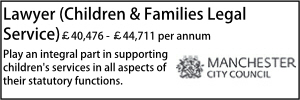



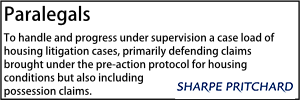



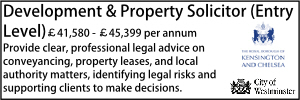


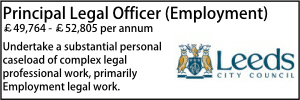





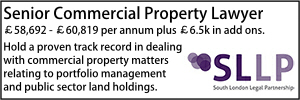




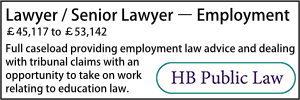





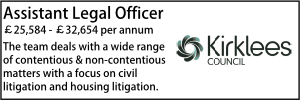


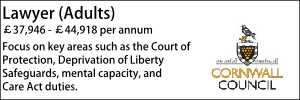







 A-Z Family Law: Take Two! - 42 Bedford Row
A-Z Family Law: Take Two! - 42 Bedford Row  Executive Programme in Public Procurement Law and Policy - University of Nottingham
Executive Programme in Public Procurement Law and Policy - University of Nottingham  Property Law Roadshow 2025 - Bristol - St John's Chambers
Property Law Roadshow 2025 - Bristol - St John's Chambers  CUBAS Comprehensive Training & Licencing (Manchester), September 2025
CUBAS Comprehensive Training & Licencing (Manchester), September 2025  AI in the Public Sector Conference - Westminster Insight
AI in the Public Sector Conference - Westminster Insight  Activism in the Workplace - 42BR Barristers Employment Law Annual Lecture
Activism in the Workplace - 42BR Barristers Employment Law Annual Lecture  DoLS Authoriser Training - LPS Law
DoLS Authoriser Training - LPS Law  Property Law Roadshow 2025 - Cardiff - St John's Chambers
Property Law Roadshow 2025 - Cardiff - St John's Chambers  Annual Fraud Conference 2025 - Oxford Investigation Service
Annual Fraud Conference 2025 - Oxford Investigation Service